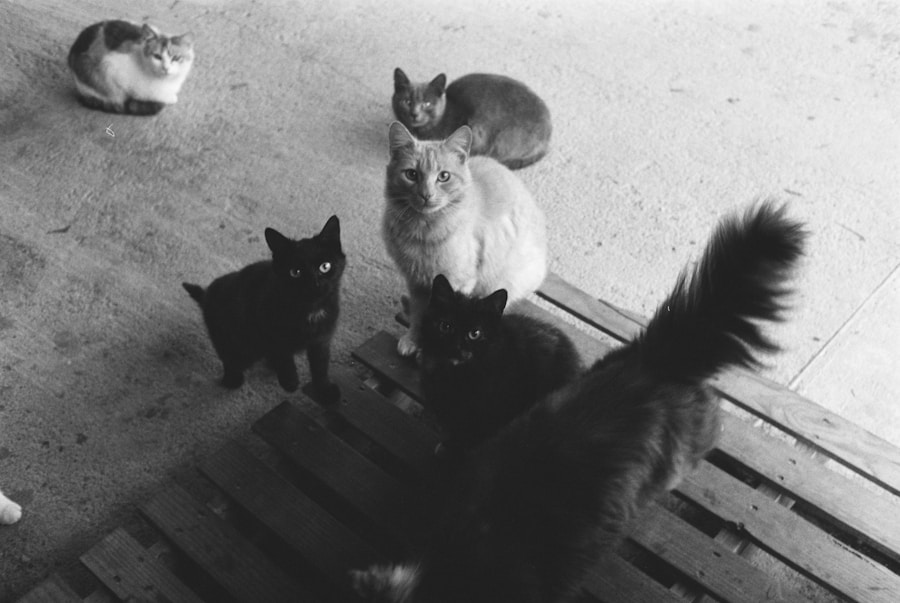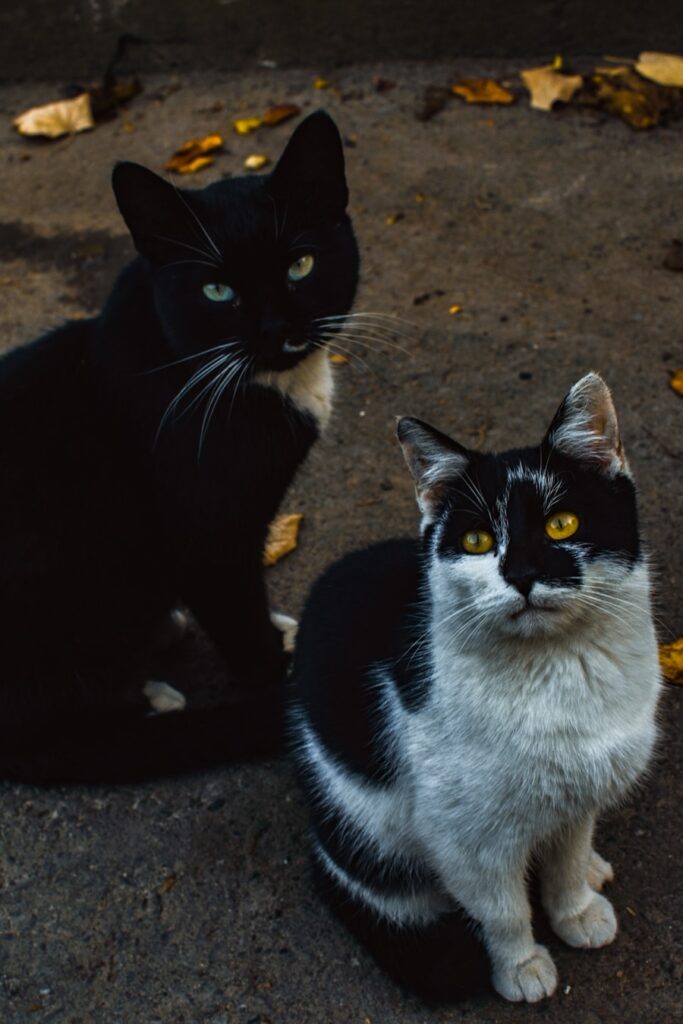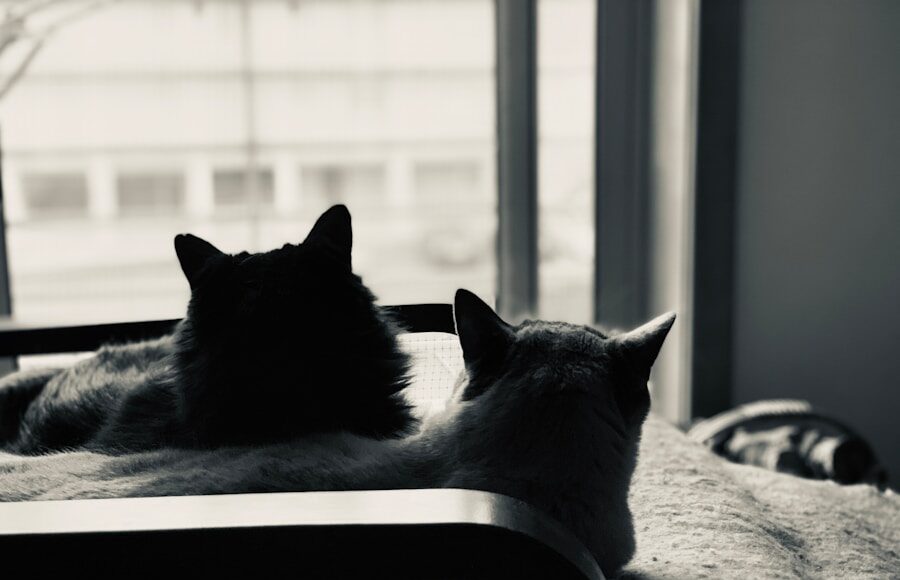When it comes to caring for indoor cats naturally, one of the first steps is to create a safe and stimulating environment. Cats are naturally curious creatures, and they thrive in spaces that allow them to explore and express their instincts. Providing scratching posts and climbing structures is essential for your feline friend.
Not only do these items satisfy their natural urge to scratch, but they also offer a place for them to climb and perch, which can be incredibly satisfying for their hunting instincts. Look for sturdy scratching posts made from natural materials like sisal or wood, and consider adding cat trees that provide multiple levels for climbing. In addition to scratching posts, interactive toys and puzzle feeders can significantly enhance your cat’s environment.
These toys encourage mental engagement and can help prevent boredom, which is crucial for indoor cats. Puzzle feeders, in particular, stimulate your cat’s natural hunting behavior by requiring them to work for their food. You can easily find a variety of these feeders online or at your local pet store.
By incorporating these elements into your home, you’re not just providing entertainment; you’re also promoting physical activity and mental stimulation, which are vital for your cat’s overall well-being. Another great way to enrich your cat’s environment is by ensuring they have access to windows for bird watching. Cats love to observe the world outside, and a sunny window perch can be a perfect spot for them to relax while keeping an eye on the birds and squirrels.
If you don’t have a suitable window ledge, consider investing in a cat window seat or a secure catio (cat patio) that allows them to enjoy the outdoors safely. This simple addition can provide hours of entertainment and mental stimulation for your furry friend.
Please visit more Pets Care infos.care/pets for more information.
Key Takeaways
- Providing scratching posts, climbing structures, and access to windows for bird watching creates a safe and stimulating environment for indoor cats.
- Offering a balanced diet of high-quality, natural cat food and fresh water in a clean bowl at all times is essential for proper nutrition and hydration.
- Regular play sessions with toys, laser pointers, and puzzle feeders are important for regular exercise and mental stimulation.
- Brushing the cat’s coat regularly, trimming nails, and using natural grooming products are key for natural grooming and hygiene.
- Creating cozy hiding spots, using pheromone diffusers, and providing a predictable routine are important for environmental enrichment and stress reduction.
Proper Nutrition and Hydration
Proper nutrition and hydration are cornerstones of caring for indoor cats naturally. Offering a balanced diet of high-quality, natural cat food is essential for maintaining your cat’s health. Look for foods that list real meat as the first ingredient and avoid those with fillers like corn or soy.
Cats are obligate carnivores, meaning they require a diet rich in animal protein to thrive. You might also want to consider incorporating wet food into their diet, as it can provide additional moisture that helps keep them hydrated. Speaking of hydration, providing fresh water in a clean bowl at all times is crucial.
Cats can be picky about their water sources, so make sure their bowl is cleaned regularly to prevent any buildup of bacteria. Some cats prefer running water, so you might want to invest in a pet water fountain. These fountains not only keep the water fresh but also encourage your cat to drink more, which is vital for their kidney health.
It’s also important to avoid feeding human food that can be harmful to cats. While it may be tempting to share your meals with your furry friend, many human foods can be toxic to cats, such as onions, garlic, chocolate, and grapes. Instead, stick to treats specifically formulated for cats and always consult your veterinarian if you’re unsure about what foods are safe.
Regular Exercise and Mental Stimulation

Regular exercise and mental stimulation are key components of caring for indoor cats naturally. Engaging in regular play sessions with toys and laser pointers can help keep your cat active and healthy. Cats have bursts of energy followed by periods of rest, so try to schedule playtime when your cat is most active—usually during dawn or dusk.
Use a variety of toys, such as feather wands or balls, to keep things interesting. The goal is to mimic the hunting experience, allowing your cat to stalk, pounce, and capture their “prey.” Rotating toys is another effective strategy to keep your cat engaged. Just like humans can get bored with the same old routine, cats can lose interest in their toys if they see them every day.
By rotating their toys every week or so, you can reignite their interest and encourage them to play more actively. This simple change can make a significant difference in their overall activity levels. Incorporating puzzle feeders into your cat’s routine is another excellent way to encourage hunting behaviors while providing mental stimulation.
These feeders require your cat to solve a puzzle to access their food or treats, which can be both challenging and rewarding for them. Not only does this mimic the natural hunting process, but it also keeps their minds sharp and engaged.
Natural Grooming and Hygiene
Natural grooming and hygiene are essential aspects of caring for indoor cats naturally. Regularly brushing your cat’s coat can significantly reduce shedding and hairballs while keeping their fur healthy and shiny. Depending on the breed, some cats may require more frequent grooming than others.
Long-haired breeds like Persians or Maine Coons may need daily brushing, while short-haired cats might only need it once a week. Use a gentle brush that suits your cat’s coat type, and make grooming a positive experience by offering treats or praise during the process. Trimming your cat’s nails is another important part of their grooming routine.
Overgrown nails can lead to discomfort and even injury if they get caught on furniture or carpets. Aim to trim your cat’s nails every few weeks, but be cautious not to cut too close to the quick, which can cause bleeding and pain. If you’re unsure how to trim nails safely, consider watching tutorials online or asking your veterinarian for guidance.
Many commercial grooming products contain harsh chemicals that can irritate your cat’s skin or cause allergic reactions. Look for shampoos and conditioners made from natural ingredients that are safe for pets.
If your cat requires bathing (which is usually not necessary unless they get into something messy), use these gentle products to keep their coat clean without compromising their health.
Environmental Enrichment and Stress Reduction
Creating an environment rich in enrichment while minimizing stress is vital for indoor cats’ well-being. One way to achieve this is by creating cozy hiding spots and comfortable resting areas throughout your home. Cats love having places where they can retreat when they feel overwhelmed or just want some alone time.
Consider adding soft blankets or cushions in quiet corners or providing enclosed spaces like cat caves or boxes where they can feel secure. Using pheromone diffusers can also help reduce anxiety and stress in your feline friend. These diffusers release synthetic versions of the calming pheromones that mother cats produce, which can create a sense of security for your cat.
Placing these diffusers in areas where your cat spends most of their time can help create a more relaxed atmosphere. Additionally, providing a predictable routine can minimize uncertainty in your cat’s life. Cats thrive on routine; knowing when feeding time is or when playtime occurs can help them feel more secure in their environment.
Try to maintain consistent feeding schedules and playtimes so that your cat knows what to expect each day.
Natural Health Care and Preventative Measures

Natural health care and preventative measures are crucial components of caring for indoor cats naturally. Regular veterinary check-ups and vaccinations are essential for keeping your cat healthy and preventing diseases. Make sure you schedule annual visits with your veterinarian to monitor your cat’s health and discuss any concerns you may have.
When it comes to flea and tick prevention, consider using natural methods instead of chemical treatments whenever possible. There are various natural remedies available that can help deter pests without exposing your cat to harmful chemicals. For example, diatomaceous earth can be sprinkled around your home as a natural insecticide, while essential oils like lavender or cedarwood (used cautiously) may help repel fleas.
Offering natural remedies for common ailments is another way to support your cat’s health naturally. For instance, if your cat struggles with hairballs, consider adding a small amount of pumpkin puree or coconut oil to their diet; both are known to aid digestion.
Mental and Emotional Well-being
Caring for indoor cats naturally also involves focusing on their mental and emotional well-being. Providing positive reinforcement and affection is essential in building a strong bond with your feline friend. Whether it’s through gentle petting or verbal praise during training sessions, showing love and appreciation helps create a trusting relationship between you and your cat.
Creating a predictable routine is another effective way to reduce anxiety in indoor cats. Cats thrive on consistency; knowing when meals are served or when playtime occurs helps them feel secure in their environment. Try to maintain regular schedules for feeding, playtime, and even quiet time so that your cat knows what to expect throughout the day.
Lastly, offering opportunities for mental stimulation and exploration is vital for keeping your cat happy and engaged. Consider setting up interactive play sessions where you can engage with them using toys or even teaching them new tricks using clicker training methods. The more you stimulate their minds, the happier they will be!
Creating a Holistic Approach to Indoor Cat Care
Taking a holistic approach to indoor cat care means considering all aspects of your feline friend’s well-being—physical, mental, and emotional health included! Incorporating natural remedies and supplements into their routine can enhance their quality of life significantly. For example, many cats enjoy catnip as a natural stimulant that encourages playfulness; others may benefit from CBD oil for anxiety relief.
Consulting with a holistic veterinarian can provide personalized care tailored specifically for your cat’s needs. These professionals often have insights into alternative treatments that complement traditional veterinary care while focusing on overall wellness rather than just treating symptoms. Ultimately, caring for indoor cats naturally involves looking at the bigger picture—ensuring that every aspect of their life contributes positively to their health and happiness.
By considering their physical needs alongside emotional support through love and enrichment activities, you’ll create an environment where they can thrive. In conclusion, caring for indoor cats naturally involves creating an enriching environment filled with opportunities for play, exploration, proper nutrition, grooming routines, stress reduction techniques, preventative health measures, emotional support strategies—all while considering holistic approaches tailored specifically for each unique feline companion! By implementing these tips into daily life with your beloved pet(s), you’ll foster an atmosphere where they feel safe loved—and most importantly—happy!
For more tips on how to care for indoor cats naturally or related topics on pet care, check out our more articles on Cats https://infos.care/pets/cats
FAQs
What are some natural ways to care for indoor cats?
Some natural ways to care for indoor cats include providing a balanced diet, regular exercise, mental stimulation, and a safe and comfortable environment.
What are some tips for keeping indoor cats happy?
Tips for keeping indoor cats happy include providing plenty of toys and scratching posts, creating vertical space for climbing and perching, and spending quality time with your cat through play and affection.
How can I ensure my indoor cat gets enough exercise?
You can ensure your indoor cat gets enough exercise by providing interactive toys, engaging in play sessions, and setting up a cat-friendly environment with opportunities for climbing and exploring.
What are some natural remedies for common cat health issues?
Some natural remedies for common cat health issues include using catnip for stress relief, providing a balanced diet to support overall health, and using natural flea and tick prevention methods.
How can I create a natural and safe environment for my indoor cat?
You can create a natural and safe environment for your indoor cat by using non-toxic cleaning products, avoiding harmful plants, and providing a comfortable and stimulating living space.











